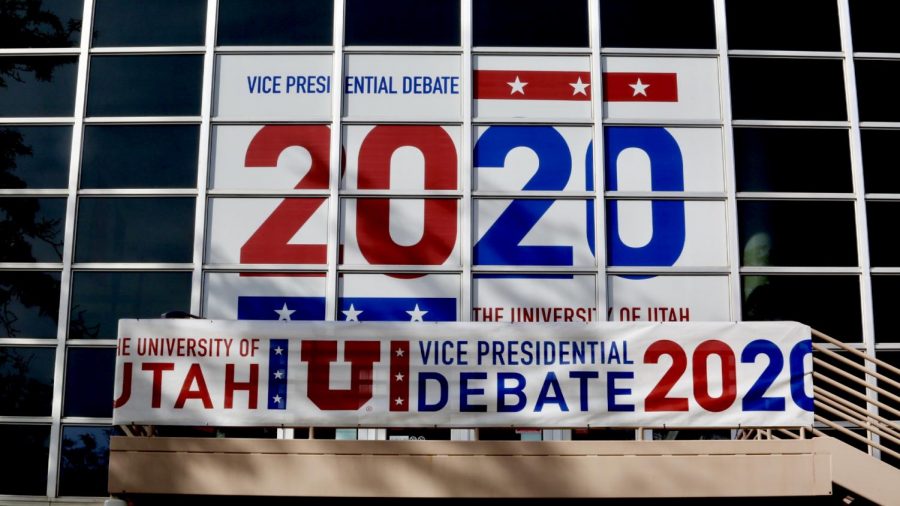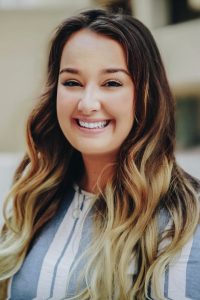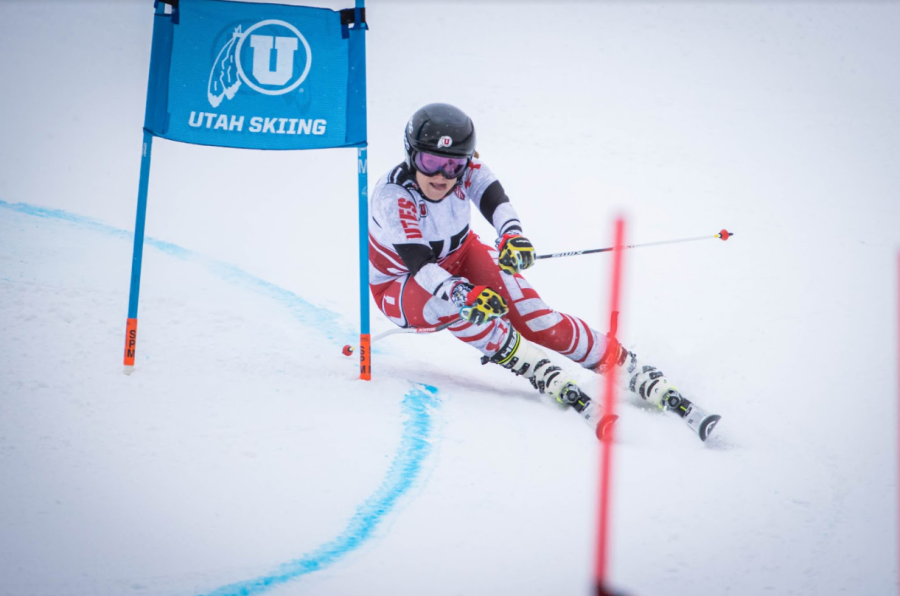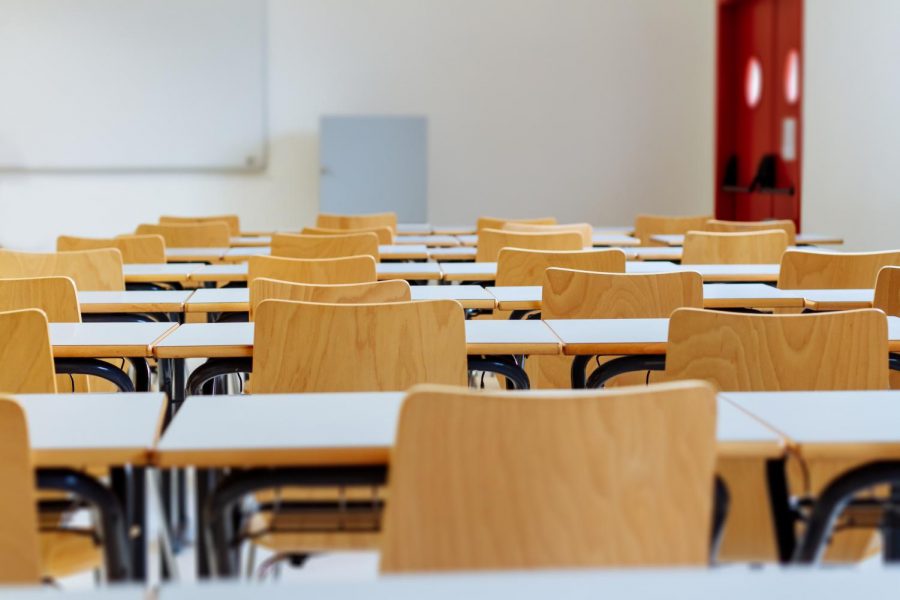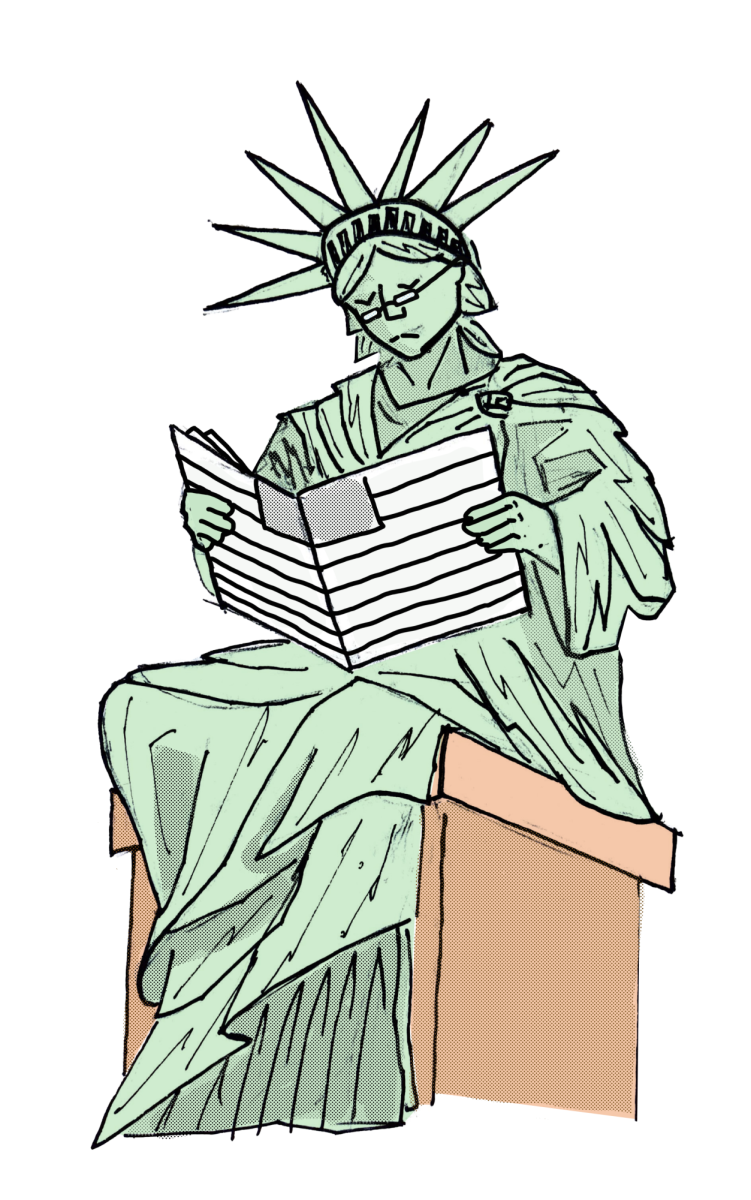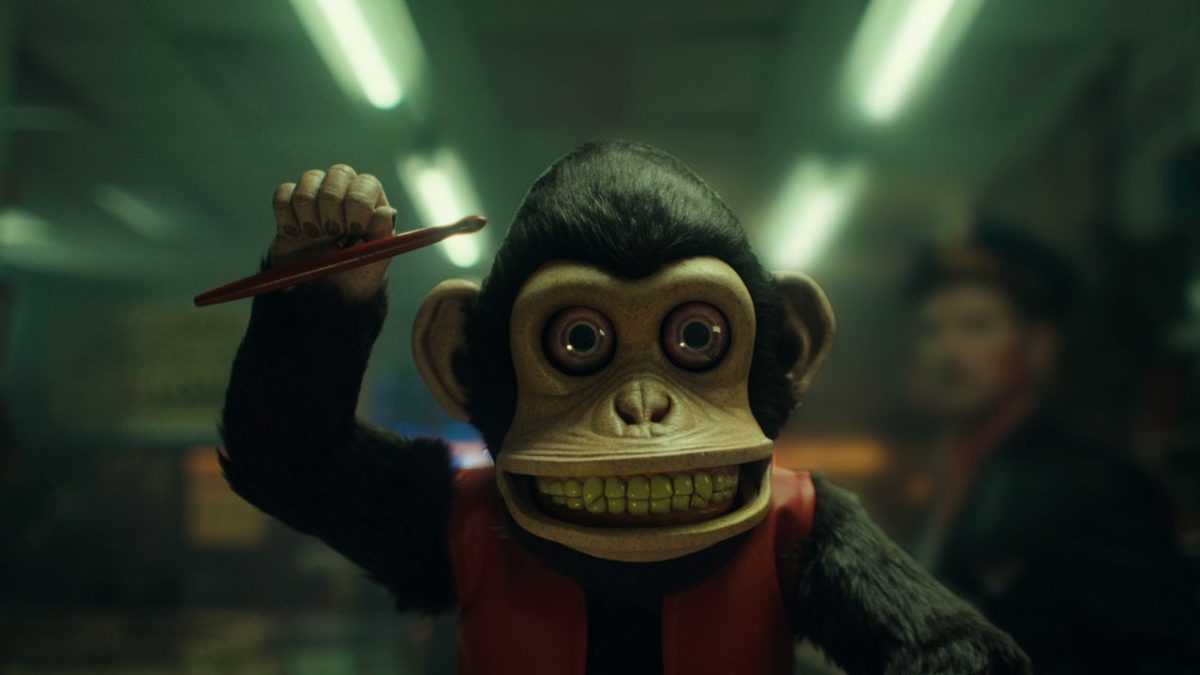Why People Need to Watch The Presidential Debates, According to These Two U Professors
An advertisement for the 2020 Vice Presidential Debate at the Student Union at the University of Utah campus in Salt Lake City on September 28th 2020. The last 2024 Presidential Debate will also be held at the U. (Photo by Camille Rousculp | The Daily Utah Chronicle)
October 5, 2020
In 1960, the first televised United States presidential debate took place between John F. Kennedy and Richard Nixon. Some regarded Kennedy’s win over Nixon in the debate as a turning point in the election.
“People said that Nixon looked sickly, he was sweating a lot, his suit sort of blended in with the background,” said Dr. Danielle Olden, a history professor at the University of Utah. “Kennedy appeared much younger on TV… He looked a lot better and so he just seemed to be much more in control. For a while, people said that swung the election.”
The League of Women Voters, a nonpartisan civic organization, ran the first debates. Attempting to keep candidates honest, the LWV asked difficult, critical questions they weren’t used to getting.
“The candidates didn’t like that very much,” Olden said. “Eventually, there was disagreement over who would have control of the debate and who would structure them and organize them because the candidates didn’t like being kept off guard.”
As a result, the Commission on Presidential Debates was formed. Today, political parties have a lot of control over the debates and how they’re structured, according to Olden, and they usually don’t have much of an effect in terms of convincing voters.
“Debates don’t affect most people’s decisions on who they’re going to vote for,” Olden said. “There certainly is a smaller demographic of people who show up to the debates and who are undecided, and the debates actually convince them one way or the other. But in general… they tend to be more political spectacle than anything else.”
Olden said the political spectacle aspect of debates has only grown with the evolution of media. “On the one hand, our shifting media landscape has allowed more and more people to actually engage with the debates in some way,” Olden said. “But on the other hand, it’s also enabled the expansion of fake news.”
While it may be true that debates don’t have much of an impact in terms of how people vote, Olden believes they still serve a purpose. “They reveal a lot about U.S. political culture and the divisive nature of our two-party system,” Olden said. “They can be a really insightful and educational way to see firsthand the way that campaigns unfold and see one of the main events of the campaign season.”
Dr. Baodong Liu, a political science professor at the U, said the presidential debates serve as a way to inform voters about the specific positions of the candidates.
“It is also arguably very important for some controversies to be finally resolved,” Liu said. “For example, right now – Trump has declined to make a commitment to accept the election outcome and go through the peaceful transfer of power if he is defeated. And so, debates are extremely important for voters to see how controversial issues can be directly spoken by the candidates to the voters.”
It’s also critical to hold candidates responsible for what they say in the campaign, Liu said.
When it comes to the vice-presidential debate, Olden said the purpose they serve is typically different from a normal presidential debate. “Most campaigns understand these debates as a way to support the presidential candidate, and that might be that the vice-president takes on a different role,” Olden said.
Olden said some different tasks a vice-presidential candidate might have during a debate is to act as an attack dog on behalf of their running mate and go after the opponent, to reiterate the platform of the campaign or party, to make their running mate look good or to clarify something that their running mate misspoke about.
“They’re kind of like surrogates for the presidential candidates,” Olden said.
It’s important to pay attention to the vice-presidential candidates because they will likely eventually run presidential campaigns themselves, according to Liu. “Our students have this great chance to ask the VP candidates directly about how they will govern,” Liu said.
Students in particular need to be active participants in the election process, according to Liu, because new voters have a significant impact on the outcome of the election.
“In political science, new voters are always important for candidates. We know that. We’ve found that they indeed play a significant role in shaping whether the election will go one way or another,” Liu said. “So, our students should take that seriously, and they should raise questions to both party candidates and make their own mind and decide for the best of the country.”


